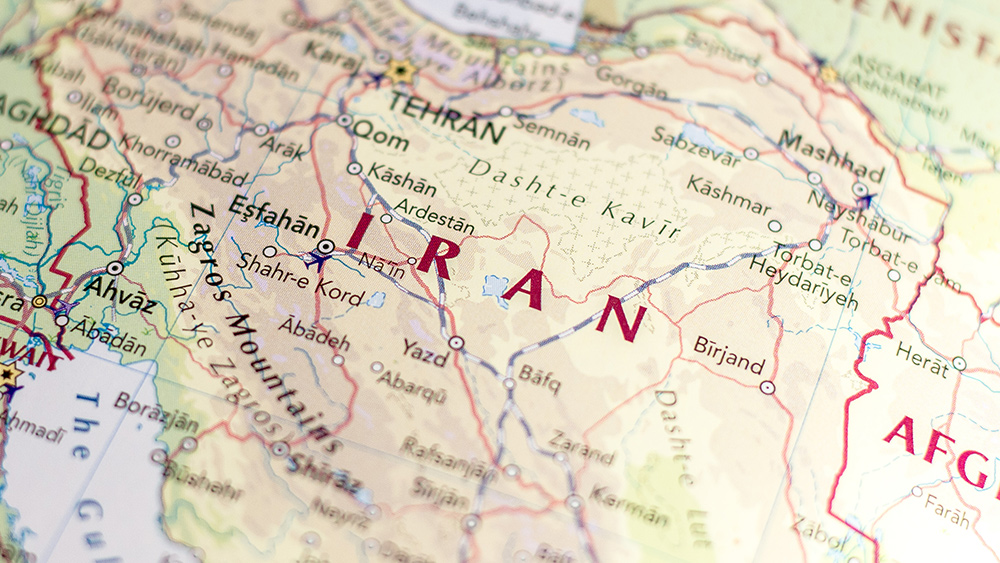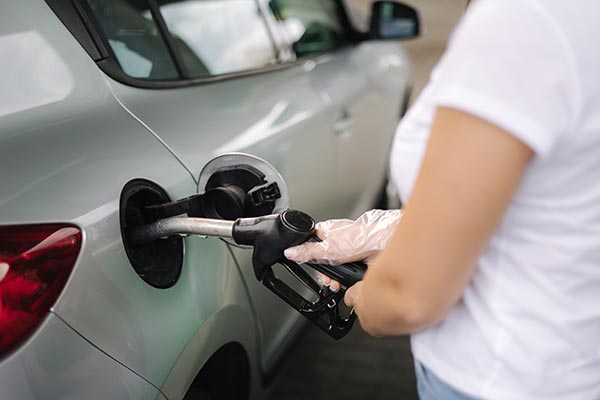Preparing for the unthinkable: How to safeguard your finances against collapse
06/22/2025 / By Zoey Sky

- Prepare for financial collapse by learning how to recognize warning signs, such as prolonged economic downturns, rising unemployment, stock market crashes, bank instability, high national debt and political unrest. These signals suggest a potential financial crisis.
- Learn from the wealthy, who diversify assets and prioritize self-sufficiency.
- Assess your financial health by calculating net worth (assets minus debts), tracking income/spending and reducing high-interest debt. Strengthen savings and avoid relying on a single income source.
- Build a multi-layered safety net by starting an emergency fund and reducing or avoiding debt.
- Secure your safety beyond finances by stocking up on enough essentials to last for at least six months.
Waking up to find your stores shuttered, savings devalued overnight and headlines screaming “recession” is every prepper’s nightmare. Yet history shows this scenario is not just a fictional plot because it has happened before and could happen again.
A financial collapse, defined as the catastrophic failure of an economic system, brings chaos: lost jobs, scarce essentials and plummeting purchasing power. Today’s interconnected economy faces risks from debt overhangs, geopolitical volatility and geopolitical instability.
But with foresight and action, you can mitigate risks and position yourself for resilience. (h/t to ThePreppingGuide.com)
Recognizing the red flags: Signs of an impending crisis no one can predict
No one can predict the future, but certain warning signs persist before major financial crises. Prolonged economic slumps with rising unemployment and falling gross domestic product (GDP) indicate deeper systemic issues.
A stock market crash without a clear cause can signal investor panic, while unstable banks, marked by loan defaults or bank runs, erode confidence. High national debt and political unrest further strain economies, making collapses more likely.
Stay alert if these risks emerge in your region.
Lessons from the elite: How the wealthy prepare
The super-rich employ sophisticated strategies. They diversify wealth beyond stocks and bonds into real estate, precious metals and stable foreign currencies.
Many also store resources physically. A Wall Street executive, for instance, keeps a helicopter and an underground bunker stocked with food, power and medical supplies.
Beyond assets, security and self-sufficiency are priorities.
Assessing your financial health
Preparation begins with understanding your current standing. Calculate your net worth by subtracting debts from assets, such as savings, property and investments. Review monthly income and spending and identify unnecessary expenses.
High-interest debt, low savings or over-reliance on a single income are vulnerabilities. Tackling these first strengthens your defenses.
Building a safety net: Multi-layered strategies
These strategies can help you build a safety net as you prepare for financial collapse:
Emergency fund: The bedrock of security
Start with a dedicated emergency fund. Aim to cover three to six months’ essentials, like rent, utilities and groceries.
Use a high-yield savings account separate from your everyday spending account. Automate savings directly from paychecks to avoid overspending.
Slash debt aggressively
High debt magnifies the effect of financial collapse. Prioritize getting rid of high-interest debts, such as credit cards, using methods like the debt snowball (pay smallest balances first) or debt avalanche (target highest rates).
Debt consolidation or negotiating lower rates with lenders can ease the burden.
Diversify income and skills
Income streams beyond your primary job buffer against job losses. Freelance work, e-commerce side ventures or rental properties add stability.
Strengthen job-related skills or learn high-demand trades (such as healthcare or IT) to ensure employability.
Tangible assets vs. financial markets
During collapses, paper investments like stocks or bonds can evaporate.
Tangible assets hold value:
- Barter-ready goods – Prioritize items that are critically scarce in a crisis, such as non-perishable food, gasoline, medicines, seeds, tools and batteries. These often surpass gold in value when supplies dwindle.
- Gold and silver – Despite their classic reputation, gold may see limited utility post-collapse if barter systems dominate. Smaller denominations, such as silver coins, are more practical for day-to-day exchanges. Buy from reputable local dealers or bullion platforms.
Stockpiling essentials: Beyond survival basics
Prepare to weather months of scarcity by storing six-month reserves of:
- Food – Stock up on canned food, dried grains, beans and freeze-dried meals. Include vitamins and dietary supplements.
- Water – A 60-day supply of water, with one gallon of water per person, per day. Consider getting water filters and purifiers for long-term use.
- Hygiene and medical supplies – Ensure you have an ample supply of soap, hand sanitizer, first-aid kits, prescription medications and medical supplies.
- Tools and energy – You will also need gardening equipment, solar-powered chargers and batteries.
Financial hedges and safe storage
Avoid bonds issued by financially stressed nations, as they may default during crises.
Instead, stock up on foreign currency and hold cash in stable currencies, like the Canadian or Australian dollar or the Swiss franc, in a secure FDIC-insured offshore account.
Keep essential supplies, such as documents, cash and metals, in a home safe or rented locker.
Securing your safety: Beyond money
These tips can help secure your safety during a financial collapse:
- Monitor local news and government alerts. Use apps like FEMA’s Disaster App for updates.
- During social unrest, stick to secure routes and neighborhoods to prevent exposure to violence or looting.
- Consider creating a “bug-out” location, such as a safe home or prepared retreat stocked with supplies.
Start today. Increase your emergency fund to six months’ income, cut credit card debt and begin moderate stockpiling. Every small step builds resilience. Remember: Preparation breeds empowerment, not fear. Proactive planning safeguards your future and helps you assist others in need.
Visit Preparedness.news for more tips on how to safeguard your finances before disaster strikes. You can also visit Health Ranger Store and Brighteon Store to find more supplies for your prepping needs.
Watch this clip about UHMWPE Braided Survival Cord and Bug Spray and why you should have them in your prepper stockpile.
This video is from the Health Ranger Store channel on Brighteon.com.
More related stories:
Prepper essentials: Why bucket food is a game-changer for emergency preparedness.
Prepping on a budget: How to use your food supply to get through unexpected financial emergencies.
Ten ways to adapt to the economic collapse unfolding before us.
Practical prepping tips for retirees.
Sources include:
Submit a correction >>
Tagged Under:
Collapse, debt bomb, debt collapse, disaster, emergency funds, emergency preparedness, finance, financial collapse, homesteading, off grid, preparedness, prepper, prepping, savings, SHTF, survival, tips
This article may contain statements that reflect the opinion of the author
Get independent news alerts on natural cures, food lab tests, cannabis medicine, science, robotics, drones, privacy and more from NewsTarget.com
Get independent news alerts on natural cures, food lab tests, cannabis medicine, science, robotics, drones, privacy and more from NewsTarget.com
RECENT NEWS & ARTICLES
COPYRIGHT © 2017 DEBT COLLAPSE NEWS




















